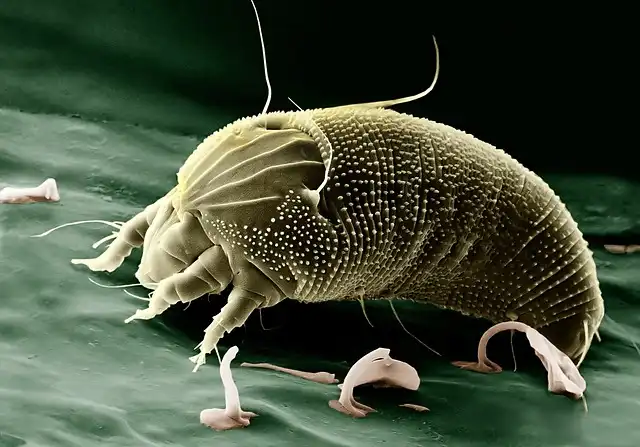Ethiopian wolves are the first large carnivores found to slurp nectar

Anecdotal reports from researchers monitoring the wolves suggest that they hunt rodents during the day and slurp nectar in the afternoon, says wildlife biologist Sandra Lai, almost like the carnivores are getting dessert.
Regional individuals and visiting researchers have periodically seen wolves lick flowers throughout flowering season for many years. In Might and June 2023, she and coworkers followed six wolves from three various packs as the pets foraged on red warm texas hold’em blossoms. 4 wolves saw just a handful of flowers, consuming nectar from fully grown flowers at the cone’s base. The staying two pets appeared to have an even more powerful taste for the sugar, indulging from even more than 20 flowers throughout a solitary prance in a blossom patch.
Experiments including specific blossoms that are touched by a solitary wolf with pollen on its muzzle can assist find out, Lai states.
Neighborhood people and going to scientists have actually periodically seen wolves lick flowers during flowering season for many years. The habits hadn’t been recorded in a clinical paper. When Lai discovered it two years ago, she intended to figure out much more.
An Ethiopian wolf (Canis simensis) licks some nectar from a red hot online poker blossom (Kniphofia foliosa). These jeopardized wolves, the initial well-known huge predators to eat nectar, can additionally function as pollinators for the flower types.
Erin I. Garcia de Jesus is a personnel writer at Science Information. She holds a Ph.D. in microbiology from the College of Washington and a master’s in scientific research interaction from the University of California, Santa Cruz.
In May and June 2023, she and associates complied with six wolves from three different packs as the pets foraged on red hot texas hold’em blossoms. Four wolves visited simply a handful of blossoms, drinking nectar from fully grown flowers at the cone’s base. The continuing to be two pets appeared to have an even stronger preference for the sugar, indulging from more than 20 flowers during a single romp in a blossom spot.
Mammals that feed upon nectar, such as sugar gliders, normally live in trees and weigh much less than 6 kilos. Jeopardized Ethiopian wolves, evaluating in around 15 kilograms, are the first large carnivorous killers understood to feed on blossoms, says Sandra Lai, a wildlife biologist with the College of Oxford’s Ethiopian Wolf Preservation Program (SN: 3/22/18).
In the highlands of Ethiopia, meat-eating Ethiopian wolves (Canis simensis) eat almost solely on rats. But the killers also have a sweet tooth, occasionally drinking nectar from Ethiopian red hot casino poker blossoms (Kniphofia foliosa), researchers report November 19 in Ecology.
Due to the fact that the wolves belong to different packs, Lai says the habits seems a prevalent method. Yet it’s vague whether plant pollen from wolf muzzles assistance flowers bear fruit. Experiments involving private blossoms that are touched by a single wolf with plant pollen on its muzzle could assist find out, Lai says. “Also, you have to take into consideration the other pollinators.”
An Ethiopian wolf (Canis simensis) laps up nectar from 3 Ethiopian red hot poker flowers (Kniphofia foliosa) in the country’s Bundle Mountains National Park. Anecdotal reports from researchers checking the wolves recommend that they hunt rats throughout the day and slurp nectar in the afternoon, states wild animals biologist Sandra Lai, nearly like the carnivores are obtaining treat.
A number of birds and insects feed on red warm texas hold’em flower nectar, as do baboons and some individuals, that use the liquid as a sugar. It’s feasible that smaller sized critters that can fit body parts deeper right into flowers are a lot more effective pollinators than those that collect dripping nectar from the exterior.
Scientific research Information was established in 1921 as an independent, nonprofit resource of accurate info on the current news of medication, modern technology and scientific research. Today, our mission continues to be the same: to empower people to assess the news and the globe around them. It is released by the Society for Scientific research, a nonprofit 501(c)( 3) membership company committed to public involvement in scientific research and education and learning (EIN 53-0196483).
We are at a crucial time and sustaining science journalism
is more crucial than ever. Science News and our
moms and dad company, the Culture for Scientific research, require your assistance to enhance
scientific proficiency and guarantee that important societal choices are made
with scientific research in mind.
The habits mean an unanticipated duty for wolves in this community: pollinator. As a wolf licks nectar from the cone-shaped blossoms, its muzzle can become covered in pollen that could get passed from blossom to blossom.
1 Canis simensis2 Ethiopian
3 Ethiopian red hot
4 Ethiopian wolf
5 red hot poker
« Dog Left To Die In A Car Trunk As A Puppy Last Year Reunites With Foster MomDecision on extradition of Paul Watson to Japan in two weeks »
